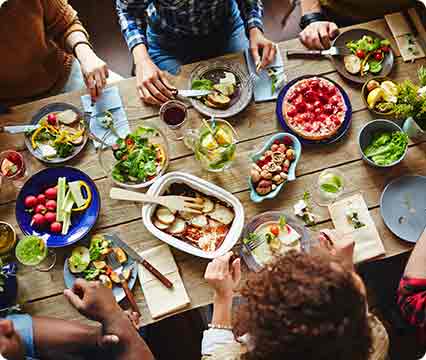The potential of peer social norms to shape food intake in adolescents and young adults: a systematic review of effects and moderators
Stok et. al (2016) assessed the role that peer social norms play in shaping young people’s food intake in this systematic review, breaking down important questions such as whom and when peer social norms are related to the amount of food young people consume. A total of thirty-three (17 correlational, 16 experimental) studies that met the inclusion criteria were included. With the correlational studies 16 out of the 17 studies found significant associations between norms and food intake, while all 16 experimental studies found effects of norm manipulations on food intake, and some evidence of behavioral spillover effects of norms. Also, four moderators were identified from the literature synthesis that stipulate for whom and when peer social norms are related to food intake: identification with the norm referent group and eating-related habit strength were seen to moderate the effects of social norms on food consumption; forceful injunctive norms did not indicate correlations with food intake; and the influence of norms seemed restricted to types of foods typically consumed in the presence of peers. These findings have important implications for research and also potentially for the development of social norm-based interventions to improve young people’s food intake. [NPID: psychosocial, peer social norms, habits, young people]
Year: 2016
 Navigation
Navigation






